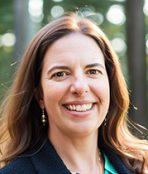-
April 01, 2016
PacTrans Welcomes Walker-Ames Scholar Dr. Basile Chaix
On the evening of Thursday March 31, 2016, a crowd of about 175 people, choosing to forego the first truly nice Seattle spring evening, packed into the Kane Hall lecture auditorium on the University of Washington’s Seattle campus to hear from Basile Chaix, at this months Walker-Ames Lecture. Dr. Chaix, currently the research director at Inserm (the French National Institute of Health and Medical Research), was invited by a host of interdisciplinary faculty at the UW to spend a week having meetings, discussions, seminars, and this seminal lecture.
One of the hosts was our very own associate director, Dr. Anne Vernez Moudon, Emeritus Faculty in the department of Urban Design and Planning and director of the Urban Form Lab. PacTrans was a cosponsor of Dr. Chaix’s visit.
Much like Dr. Moudon’s Urban Form lab. Dr. Chaix’s lab seeks to take immense amounts of data, stemming from a wide array of fields, including some from the built environment, and perform analyses in an effort to make meaningful observations about the way the built environment affects the rest of our lives as humans. More specifically his group is interested in the neighborhood’s effect on health and the relationship between transport and health.
During his presentation, Dr. Chaix gave a thorough overview of many of the projects he’s been working on to this end and highlighted some of the more interesting correlations that they have found:
- Those who shop in low-cost supermarkets are twice as likely to be obese as those who shop in expensive supermarkets
- Those who are unemployed spend significantly less time outside of their “neighborhoods” than those who are employed
- Density of services and green spaces show positive correlations with increase in walking mode split, increase in societies walking/public transport mode split increases physical activity of that society. Thus higher density of services and green spaces make for healthy communities.
Dr Chaix went on to highlight that his group’s upcoming work will explore air pollution and noise related to personal transport behavior and their effects on cardiovascular and respiratory health, and the physical environment’s effects on depression.
PacTrans is honored to have taken part this scholarly visit, and we would like to extend huge thanks to Dr. Chaix for taking the time to come and visit with us.

